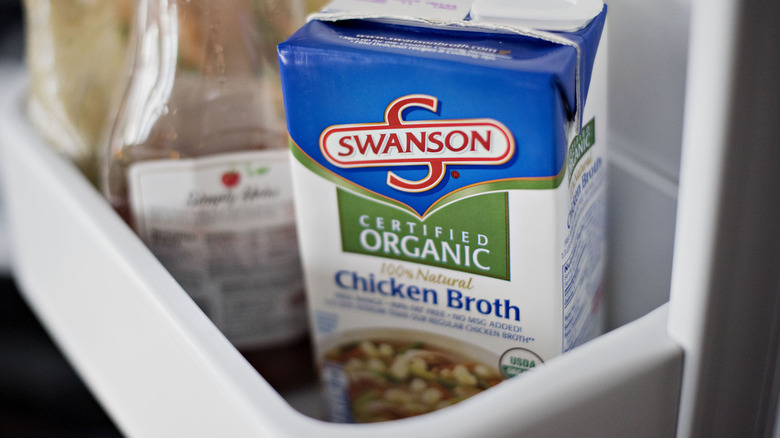How Long Does Chicken Stock Last After Opening?
Imagine you're throwing together a chicken soup in your crockpot for an easy make-ahead meal. You toss in your chicken, veggies, and a carton of chicken stock that's been hiding in the back of your fridge then set it to simmer on low. Hours later, you lift the lid, the savory aroma filling your kitchen, and you're ready for that first, delicious spoonful. But alas, the taste is far from what you expected — it's off, maybe even a bit rotten. And just like that, there goes dinner. This culinary misadventure leads us to an important question: Just how long does chicken stock last in the fridge?
According to the USDA, once you open store-bought chicken stock, it should be refrigerated and used within 3-4 days. If you decide to freeze it, you can extend its shelf life to 2-3 months. This guideline is your culinary safety net, ensuring that your soups and sauces are always as delicious (and edible) as you intend them to be.
Does this apply to every type of chicken stock?
Although storebought chicken broth has the same USDA guidelines as chicken stock, there can be some shelf-life variances between broths and stocks. Different brands come with different recommendations, based on ingredients, and preservatives included. For instance, liquid stock brand College Inn suggests using their stock within 4-5 days of opening, while Pacific Foods' broths have a more generous timeline of 7-10 days. Dry stock concentrates like Better Than Bouillon are a different story altogether, boasting a shelf life of up to two years.
When it comes to stock you've lovingly simmered at home, the same USDA rules apply here — seal that stuff up and use it within 3-4 days if refrigerating and 2-3 months if freezing. With these rules in mind, know that if you're unsure whether your stock has gone bad, you can always trust your senses. Although mold is safe to eat on some foods, it definitely shouldn't be in your stock. A sour smell, changes in color or appearance (cloudiness, or discoloration), or a sour taste are other telltale signs of spoilage. If you're past the best-by date but the stock still passes the smell, appearance, and taste test, it's likely still good to use. But when in doubt, it's always better to err on the side of caution and pour it out.
Smart storage tips for chicken stock
To avoid the disappointment of spoiled stock, start by buying only as much as you need. If you're a small household or an infrequent cook, opt for smaller cans and cartons. Steer clear of swollen or deeply dented cans or boxes, as the former is a sign of spoilage, and the latter risks it.
For unopened stock, store it in a cool, dry place, and keep an eye on best-by dates. Although cans and boxes of stock come with a best-by date, they don't mark the date you opened them. A handy tip is to use a permanent marker to jot down the opening date right on the carton or can. Extra credit goes to noting the best-by date too — your future self will thank you for doing the mental math in advance.
When it comes to freezing, do it properly. Ensure the stock is sealed well or pour it into ice cube trays and bag the results for easy, portion-sized use later. (Hint, you can do this with leftover wine, too.) This way, you'll always have the right amount of stock at hand, without the worry of it going bad. By following these simple storage tips, you can ensure that your chicken stock is always fresh and ready to enhance your culinary creations.


